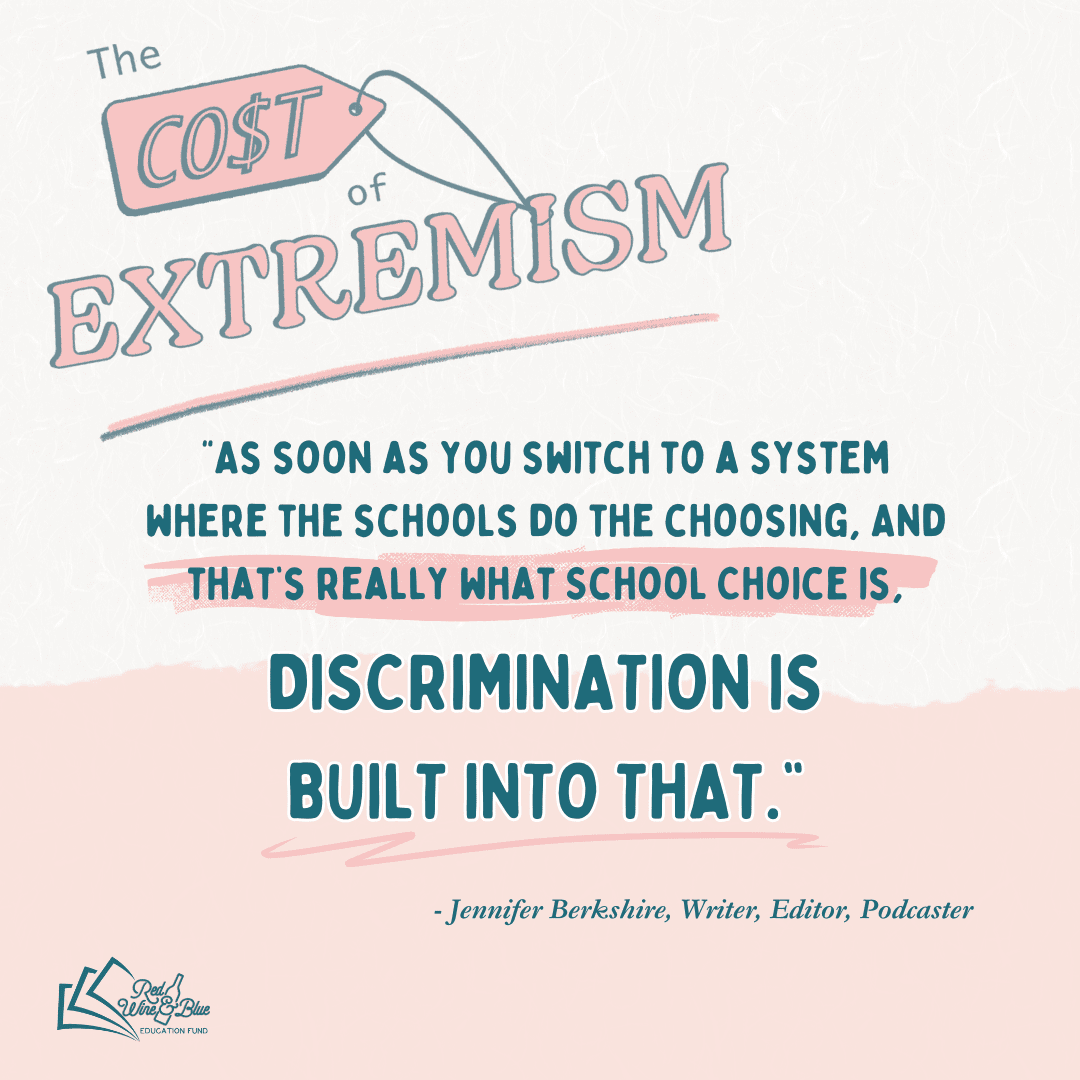 School vouchers sound fairly innocent, don’t they? But did you know that school vouchers take taxpayer funds away from public schools and direct it to religious and private institutions that are not held to the same standards of education, equity and opportunity?
School vouchers sound fairly innocent, don’t they? But did you know that school vouchers take taxpayer funds away from public schools and direct it to religious and private institutions that are not held to the same standards of education, equity and opportunity?
Proponents of school vouchers like to call this “school choice” — implying that vouchers are giving parents more options in their children’s education. But in reality, the actual choice is with the schools. Private institutions — even if they’re receiving public funds through voucher programs — are not required to admit students and can deny entrance to anyone. This means students with learning disabilities, students of color and students from lower socio-economic backgrounds often get left behind. All while these funds are diverted from public schools, making it harder for them to serve everyone.
So if school vouchers don’t give all students more choice in education, what’s the point? The real reason behind school voucher programs is to defund public education. It’s one step in a plan to eventually privatize education in the United States. We can’t let that happen. All students deserve access to well-funded public schools that provide equitable opportunities to learn and succeed.

